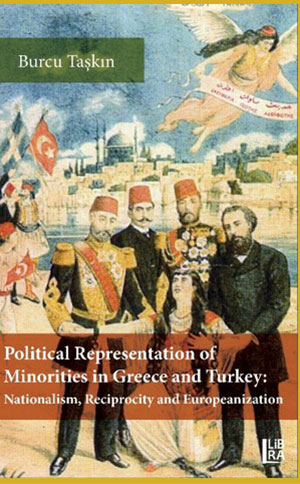“Libra kitap” publishing house published a new book in 2019: “Political Representation of Minorities in Greece and Turkey – Nationalism, Reciprocity and Europeanization”
“What influences the political representation of minorities? Does a non-core group pursue a certain pattern of collective political behavior, or does it have the ability to alter it through struggle with other groups by calculating the existing opportunities and restrictions? This book addresses these important questions by focusing on the history of political representation of the Muslim-Turkish minority in Greece and the Greek-Orthodox minority in Turkey, two communities whose rights are linked to each other via the “reciprocity principle” written in the Lausanne Treaty, signed by two countries that have long-lasting conflicts. Drawing on presentation of related political history, systematic coding of parliamentary debates and works, minority and mainstream newspapers, and elite interviews, the author analyzes and explains ignored linkages between institutions, bilateral relations between Greece and Turkey, and the role of external factors that enable or constrain minority communities’ access to political life. This study which adopts a historical institutionalism approach and, by integrating theory of both comparative politics and international relations, shows how the minority groups’ political participation and the effectiveness of their representation has been determined by the triangle of the two states’ choice of nationalism, reciprocity and Europeanization policies, mainly argues that internal factors such as groups’ capability for competition and institutional features of the political system in the host-state mostly override states’ bilateral relations with the kin-state and international factors. As a result, for the Greek and Turkish case, the host-states generally pursue the policy of state-controlled involvement of their minorities in the political life, where the existence of the threatening kin-state and minority groups’ strong demographic features lead to avoidance of full assimilation and exclusion from political representation.”

